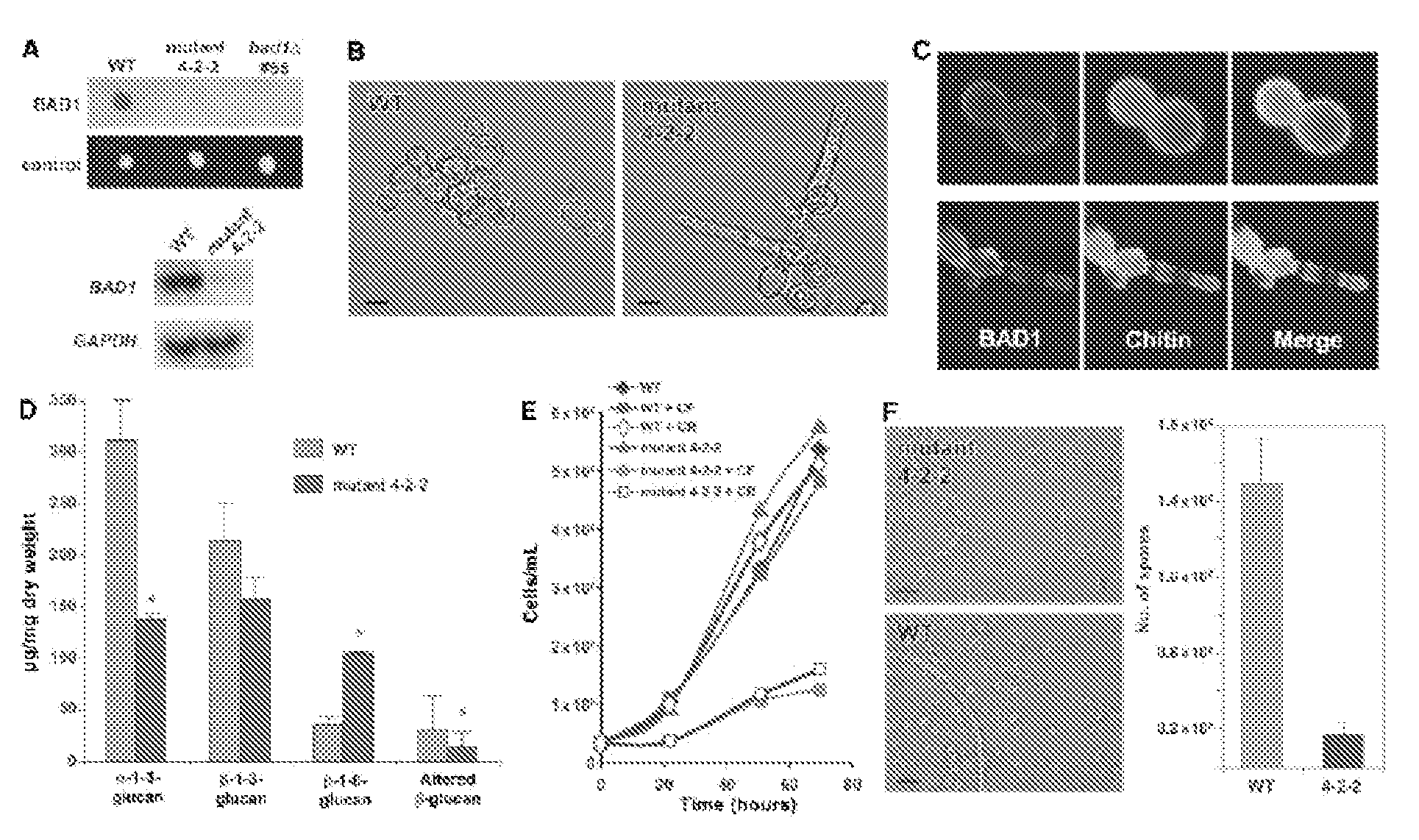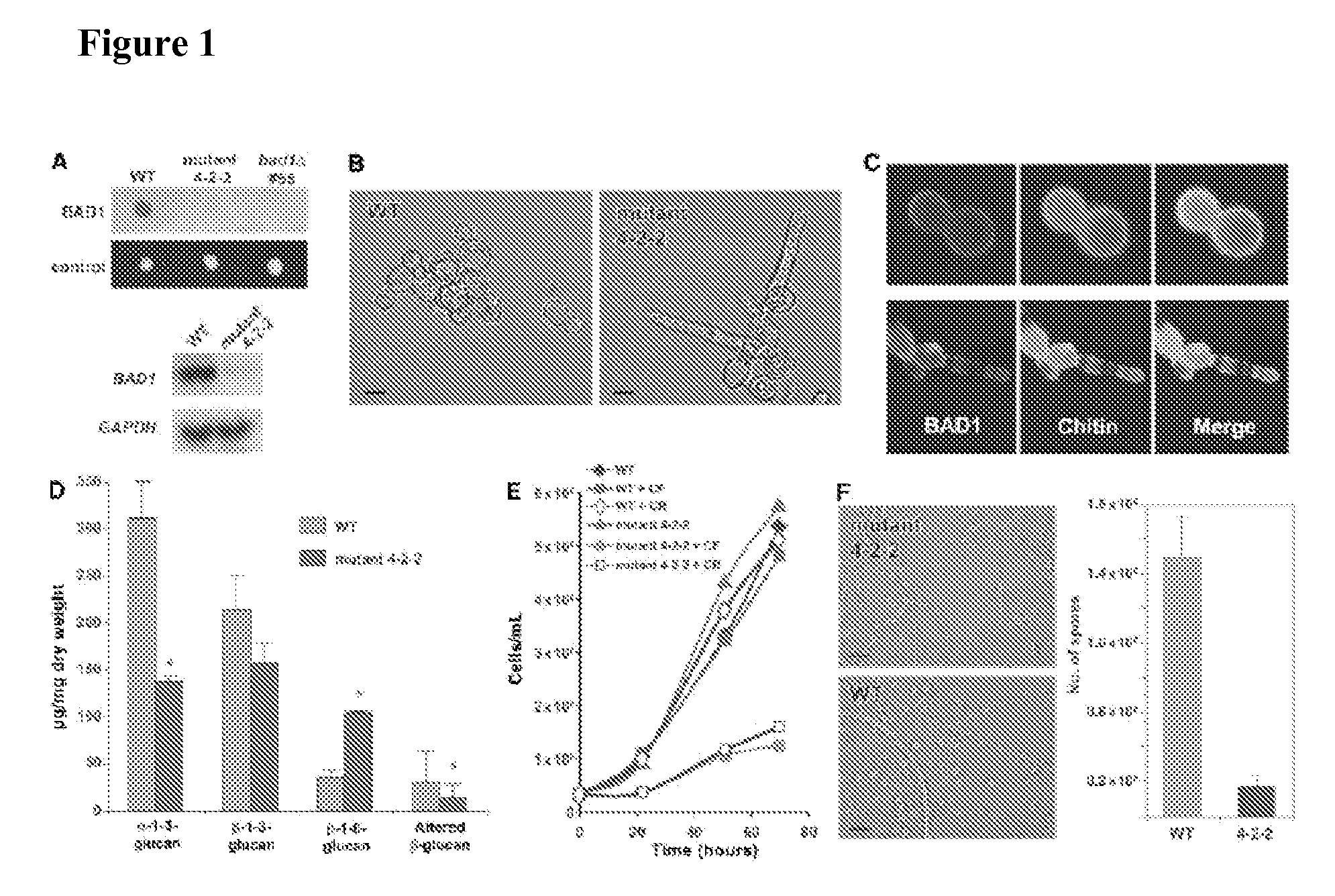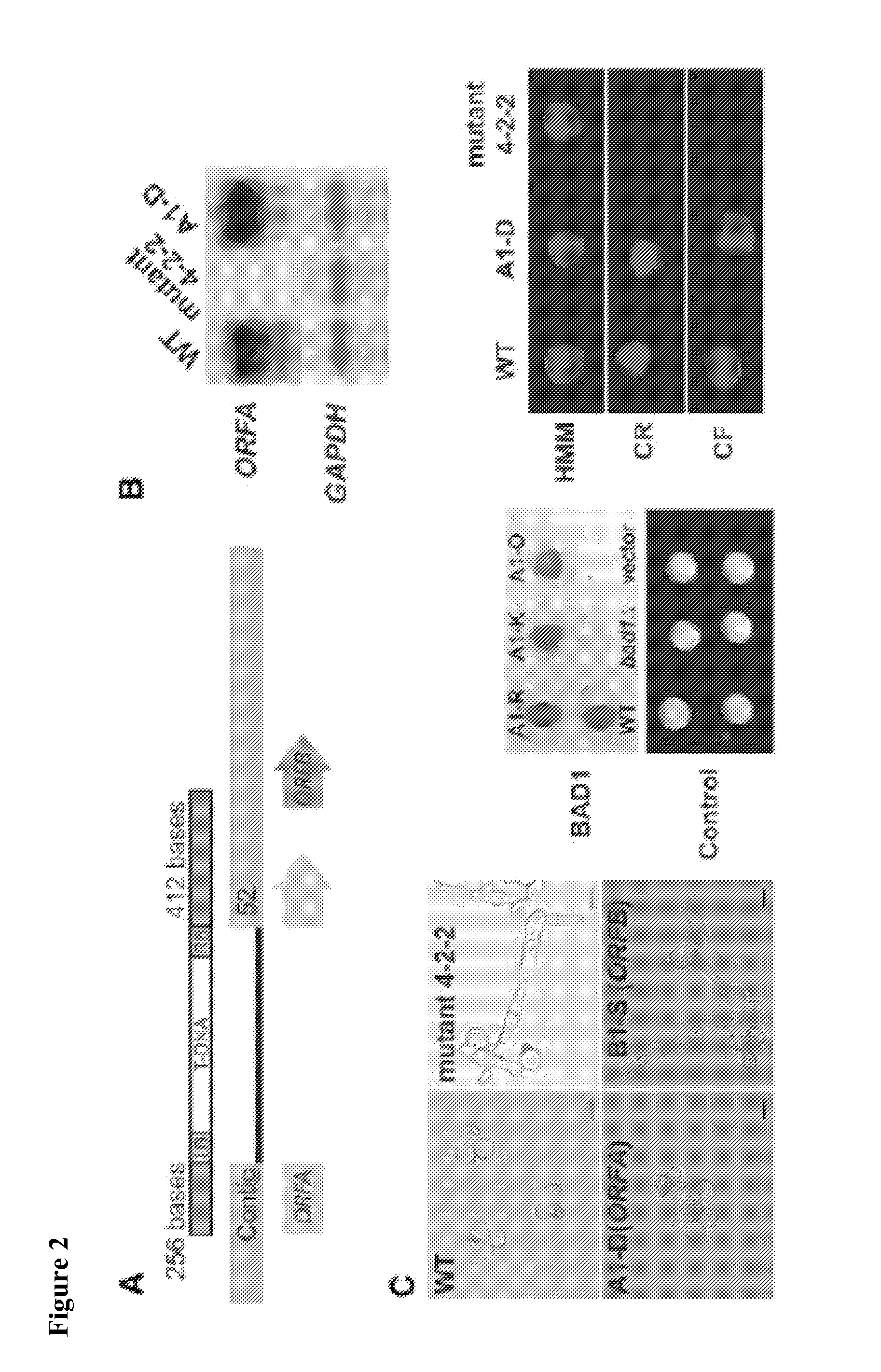Global regulator of morphogenesis and pathogenicity in dimorphic fungi and uses thereof
a global regulator and fungus technology, applied in the field of global regulator of morphogenesis and pathogenicity in dimorphic fungi, can solve the problems of molecular tools, approaches that have been too cumbersome, and dimorphic fungi have not yet been manipulated
- Summary
- Abstract
- Description
- Claims
- Application Information
AI Technical Summary
Benefits of technology
Problems solved by technology
Method used
Image
Examples
example i
Global Control of Dimorphism and Virulence in Fungi
[0045]BAD1 of B. dermatitidis was used as “bait” in hunting for regulators of dimorphism because it is expressed during the transition to yeast, regulated transcriptionally, and required for pathogenicity (P. J. Rooney, T. D. Sullivan, B. S. Klein, Mol Microbiol 39, 875 (2001); T. T. Brandhorst, M. Wüthrich, T. Warner, B. Klein, J Exp Med 189, 1207 (1999).). To identify mutants with regulatory defects, we created a B. dermatitidis reporter strain T53-19 harboring a transcriptional fusion between the BAD1 promoter and β-galactosidase reporter, PBAD1-LacZ. We transformed T53-19 with A. tumefaciens and monitored regulatory defects using a color screen (Materials and methods are available as supporting material on Science online.). As yeast at 37° C., the reporter strain stains blue on media containing 5-bromo-4-chloro-3-indolyl-beta-D-galactoside (X-gal). As mold at 22° C., it fails to stain and is white. Since BAD1 expression is upreg...
example ii
Vaccination with DRK1-Silenced Yeast Protects Mice Against Lethal Pulmonary Infection
Methods
[0081]Fungi—Strains used were a patient isolate strain 14081 obtained from the State Lab of Hygiene and the isogenic DRK1-silenced strain, designated 14081 #2-6 (Nemecek, J. C., M. Wuthrich, and B. S. Klein. 2006. Science 312:583-588.). Isolates were maintained as yeast on Middlebrook 7H10 agar with oleic acid-albumin complex (Sigma Chemical Co., St. Louis, Mo.) at 37° C.
[0082]Vaccination and experimental infection—C57BL6 mice were vaccinated as described (Wüthrich, M., H. L. Filutowicz, and B. S. Klein. 2000. J. Clin Invest 106:1381-1389.) twice, two weeks apart, each time receiving a s.c. injection of 105 DRK1-silenced yeast at each of two sites, dorsally and at the base of the tail. After vaccination, mice were infected intratracheally with 2×103 wild-type yeast as described (Wüthrich, M, H. L. Filutowicz, and B. S. Klein. 2000. J. Clin Invest 106:1381-1389.), and sacrificed 19 days later ...
PUM
| Property | Measurement | Unit |
|---|---|---|
| core temperature | aaaaa | aaaaa |
| density | aaaaa | aaaaa |
| volume | aaaaa | aaaaa |
Abstract
Description
Claims
Application Information
 Login to View More
Login to View More - R&D
- Intellectual Property
- Life Sciences
- Materials
- Tech Scout
- Unparalleled Data Quality
- Higher Quality Content
- 60% Fewer Hallucinations
Browse by: Latest US Patents, China's latest patents, Technical Efficacy Thesaurus, Application Domain, Technology Topic, Popular Technical Reports.
© 2025 PatSnap. All rights reserved.Legal|Privacy policy|Modern Slavery Act Transparency Statement|Sitemap|About US| Contact US: help@patsnap.com



